Friday, August 2, 2013
My Significant Other is the Kosmos Redux: Part 3 - Body Language
To begin with I want to go back to a point I made earlier in distinguishing different aspects of what comprises the moral. For these purposes I noted that ethics is a subset of morality that is based on the question "What should I do?". The standard here is usually based in social agreement, whether it be law or code (religious or civil) or simply socially conditioned common assumptions about good behavior. However, if one is not concerned about law except to avoid coming under its wrath, nor about social agreements except to procure basic survival goods, one is faced with two very important existential questions - why am I here, and what am I doing here? Or in other words, who am I? These are profoundly moral questions regarding identity in a sense different from the ethical, questions that cannot be deeply answered by law or code or social agreement, though they can be superficially answered by these methods - I'm a doctor, lawyer, Indian chief; a father, mother, sibling; a law abiding, hard working citizen (or maybe a nasty, lecherous rascal craving nothing more than a good steak and a little nookie from time to time). For some these kind of ethical answers are perfectly adequate. And of course, we come to these answers throughout our lives by being involved in those endless webs of interlocution that help us consciously and unconsciously define ourselves.
But as you might guess, I'm not one of those satisfied with questions of ethics and identity (as important as they are). If you read the blog series from last year My Significant Other is the Kosmos, you would know that at one point years ago I had reached a deep and painful existential crisis of meaning; one which, simply put, was the realization that ethical answers were entirely inadequate, that in fact I was thrust out of the territorial comfort of social agreement. And, I had no territory to replace it. It's here that the questions "Who am I, Why am I here, What am I doing here?" take on a whole new meaning, and a very scary one at that. If doctor, lawyer, Indian chief were no longer relevant, what was?
So I dusted myself off and, though I wouldn't have put it in these words at the time, I set off in search of new webs of interlocution, webs adequate to answer the deep existential questions. One might say that I had morally re-oriented myself to a new good. And as I said in earlier installments of this blog, there is an energy inherent in orienting yourself to the good, and I can attest from experience that there is an even greater energy released in orienting yourself to these deeper goods. Webs of interlocution start to get very, very interesting. Little did I know, however, that my body would initiate one of these webs, one that to this day is still mysteriously unfolding; one that is seemingly guiding my moral orientation and, by fiat, my art-making practice.
But this begs several questions. Normally, an interlocutor is a person you're in dialogue with, or possibly a book, a movie or an artwork you're in dialogue with (in these cases, an internal dialogue). If you can be in a web of interlocution with your body, is you're body an interlocutor? Isn't your body you? If not, it's at least yours. So what is behind the scenes here, who or what is pulling the strings of interlocution?
To be continued...
Subscribe to:
Comments (Atom)
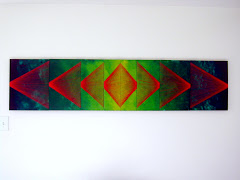

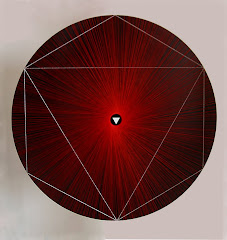
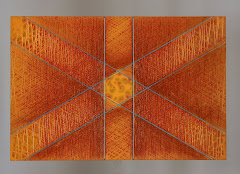
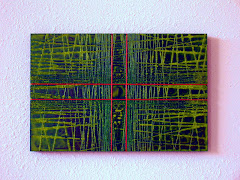
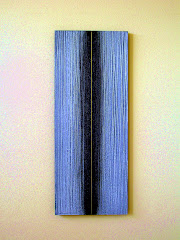.jpg)